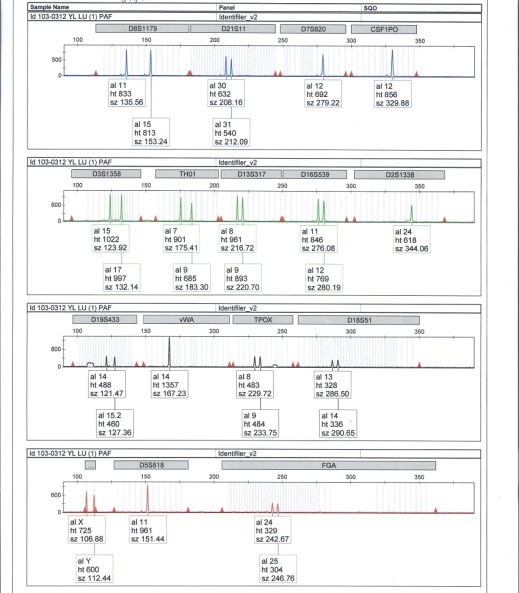DNA short tandem repeat (STR) Test
Overview
Short Tandem Repeats (STRs), also known as microsatellites, are DNA sequences that consist of repeating units of two to six nucleotides (the building blocks of DNA). STRs are highly variable between individuals, meaning that the number of repeats in a given STR can differ from person to person, making them useful for DNA profiling and identification purposes. STR analysis is widely used in forensic science, paternity testing, and population genetics studies. Because STRs are highly informative and reliable, they have become an important tool in criminal investigations and other applications where accurate DNA identification is crucial.
Stem cell transplantation, also known as hematopoietic stem cell transplantation (HSCT), is a medical procedure in which stem cells are transplanted from a donor into a patient. These stem cells can come from the patient's own body (autologous transplantation) or from a donor (allogeneic transplantation). The goal of stem cell transplantation is to replace the patient's damaged or diseased stem cells with healthy ones, which can then produce new blood cells and restore the patient's immune system.

Features
STR analysis can be used to determine the success of an allogeneic HSCT. This is because the STR profile of the transplanted stem cells can be compared to the STR profile of the patient's own cells before the transplant. If the STR profiles match, it indicates that the transplanted stem cells have successfully engrafted and are producing new blood cells. If the STR profiles do not match, it may indicate that the transplant has failed or that the patient's own cells have begun to grow back and take over.
Therefore, STR analysis can be an important tool in monitoring the success of stem cell transplantation, the status of hematopoietic stem cell chimerism and can provide valuable information for doctors and researchers studying the effectiveness of this treatment.

Procedure
Sampling: Usually blood sample or bone marrow aspirate sample will be used.
Notification
DNA STR test has well-proven quantification capacity, and it is suitable for early post-transplant monitoring, but it has a sensitivity of 2%. STR-PCR test provides higher sensitivity in BM samples than peripheral blood.
Estimated Cost
The procedure cost:
Parentage test for the relationship between parents and child: 7,650 NTD per sample
Prices are subject to change without prior notice, and need to pay in accordance with the actual medical expenses.
Last Modified: